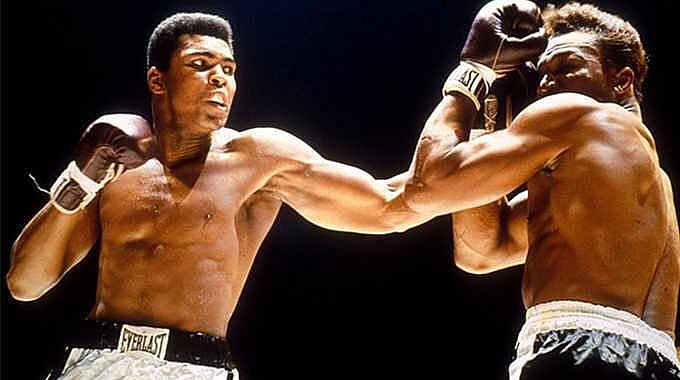3 Things Muhammad Ali Taught Us About Parkinson's

Muhammad Ali proclaimed himself "the greatest" boxing had ever seen, and based on the roster of awards he received during his 74 years on the planet, he very well may have been right.
From an Olympic gold medal to three world heavyweight boxing titles, a Presidential Medal of Freedom, and even a star on the Hollywood Walk of Fame, Muhammad Ali's accolades have inspired millions both in and out of the ring.
But for millions of Parkinson's patients and their families, Muhammad Ali was more than a great boxer — he provided inspiration and hope for those living with the disease.
Michael Okun, M.D., UF department of neurology chair and national medical director for the National Parkinson Foundation, shares three ways Muhammad Ali changed the face of Parkinson's disease.
He Brought Awareness to the Disease
Before Muhammad Ali's diagnosis became public knowledge, little was known about Parkinson's disease.
"People mistook it for Alzheimer's or ALS," Okun said. "Ali brought the critically needed international attention to Parkinson’s disease and this awareness served as the catalyst for advances in education, care and research."
Although other celebrities with Parkinson's — Michael J. Fox and former U.S. Attorney General Janet Reno are two — have continued the mission for awareness and hope, Ali's persona as a "fighter" was especially influential to patients fighting the disease.
He Gave Patients Hope
More than 60,000 individuals are diagnosed with Parkinson's each year, according to the Parkinson's Disease Foundation, and to many, the diagnosis may feel like a death sentence.
"Before [Ali's diagnosis], they didn't realize that you could potentially live a long happy life with Parkinson's disease with the right cocktail of medicines, therapies and good expert care," Okun said. "He lived almost half his life with Parkinson's; what a great example for the world of how you can live a meaningful life."
Muhammad Ali became a model for living gracefully and fully with a degenerative disease. Ali never complained about his condition to his physicians "He never let his disease define him," Okun said.
He Shifted the Power to the Patient
Muhammad Ali lived a full life following his diagnosis. "When he traveled the world and really carried his message, he showed people, 'I have Parkinson's disease but Parkinson's disease doesn't have me,'" Okun said.
One of the most powerful testimonies of his fight came during the 1996 Atlanta Olympics, where the heavyweight champ — hands shaking and body trembling —courageously lit the Olympic flame with shaking hands. Symptoms can include stiffness, tremors, a shuffling gait and sometimes dementia.
Ali continued to travel the globe, spreading messages of hope to Parkinson's patients around the world, advocating for education and research funding before Congress, and raising money to help find a cure.
The world mourns the loss of one of the greatest athletes in history, but for Parkinson's patients, their family members, researchers and physicians, Muhammad Ali's legacy will live on.